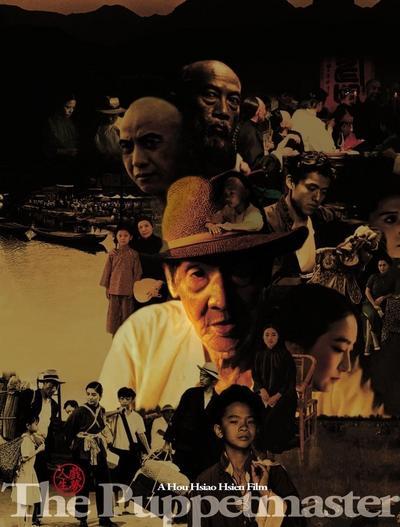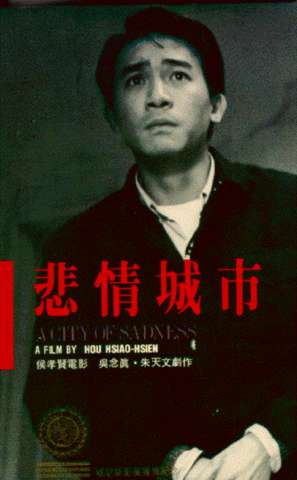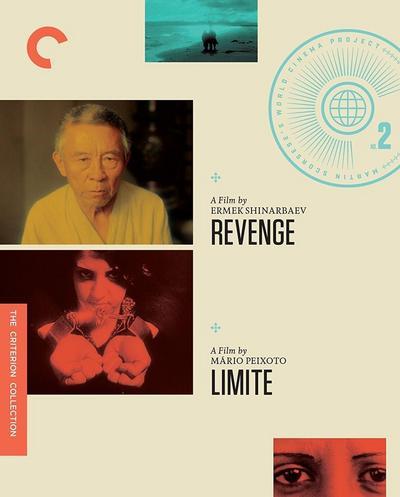Chinlin Hsieh – Flowers of Taipei: Taiwan New Cinema (2014)


Synopsis
In 1982 a small group of Taiwanese filmmakers reinvented Asian cinema, among them, Hou Hsiao-Hsien, Edward Yang. Travelling from Europe to Latin America to Asia, Flowers of Taipei sets out to assess the global influence of Taiwan New Cinema.
Taiwan – tropical Pacific island devoid of tourists; former plastic manufacturing powerhouse turned technology hub in just 20 years; not a fully-fledged country for the United Nations, yet the sole Chinese territory with a vibrant democracy.
In 1982, under severe martial law, amid the stormy climate of pre-democratization, a small group of Taiwanese filmmakers set out on a daring journey to discover their own identity, and in the process to reinvent Asian cinema. Unintentionally, these gutsy youngsters managed to offset the cheap-labor image of ‘Made in Taiwan’ by bestowing a cultural identity on their beloved homeland. Taiwan New Cinema not only inaugurated modern cinema in the Chinese world, it also secured itself a firm place on the world map of contemporary filmmaking.
Flowers of Taipei is about the harbingers of this miracle: Edward Yang, Hou Hsiao Hsien and their peers; it’s about their vision, talent and the impact they made on contemporary cinema.
On a journey from Taipei to Chiang Mai, Paris, Buenos Aires, Tokyo, Hong Kong and Beijing, a remarkable list of filmmakers, critics and artists, including Apichatpong Weerasethakul, Olivier Assayas, Marco Müller, Kiyoshi Kurosawa, Hirokazu Kore-eda, Jia Zhangke, Tian Zhuangzhaung, Wang Bing and Ai Weiwei, tell us what this cinema means to them, how it influenced their work, and what is left of that legacy today.
Introduction by Jean-Michel Frodon (former Chief Editor, Cahiers de Cinéma)
At the dawn of the 1980’s, an extraordinary event took place in the city of Taipei – an event of political, artistic and historical significance. With Taiwan still under martial law, a group of young people congregated around a movie project, which produced two collective films, In Our Time (1982) and The Sandwich Man (1983). They became the most visible manifestation of a deep transformative movement, expressing a whole generation’s craving for democracy and modernity.
Later known as Taiwan New Cinema, this movement was embodied by its two leading directors, Hou Hsiao-Hsien and Edward Yang. These different individuals gave birth to films that would rank among the most important artistic works of the late 20th century, inventing unseen forms of convergence between the great modern revolutions of cinema of Italian neo-realism, French Nouvelle Vague, and Chinese aesthetic traditions. They became figureheads in the decisive shift of world cinema as Asian movies irrupted onto the international scene, accompanying the first rate achievements from the wider Chinese world, the so called ‘fifth’ and ‘sixth’ generations, and Jia Zhangke, in mainland China, John Woo, Wong Kar-Wai and Johnnie To in Hong-Kong, but also films from Korea, Thailand, Philippines, Iran, Central Asia, Malaysia.
Hou and Yang used cinema to find new ways to account – through cinema for Taiwan’s ‘long history’, as well as its current events and social mutations. And that national context happens to be a life-size laboratory of the transformations undergone by the whole planet at the turn of the millennium, to human interaction under the effects of technology, to urban change, and the most recent forms of capitalism. Over the course of just a few years, films that stand among the great contemporary artistic creations (The Boys from Fengkuei, A Time to Live, a Time to Die, City of Sadness, Taipei Story, Terrorizers, A Brighter Summer Day) also accompanied a profound local upheaval and a deep continent-wide mutation, exemplified a decisive moment in filmmaking history, and told with premonition of the dawn of globalization, financialization, and the virtual.
Flowers of Taipei accounts for this significant event in its complexity, richness, and fragility. It documents the context of its appearance, the blasting power of its artistic energy, the circumstances of its decline. Thanks to the participation of numerous current filmmakers, Chinlin Hsieh’s movie also testifies of the long-term effects of New Taiwan Cinema and the great artists Hou and Yang, on China, Asia and the wider world.
Director’s Statement
I became an adult watching Taiwan New Cinema. At 16 I saw The Sandwich Man (1983). It still haunts me. Those films helped me reflect on Taiwan’s history and what it meant to be Taiwanese. 30 years later, working on this project I’ve re-lived that era, sensing its energy as a generation sought to build a better country. Taiwan lifted martial law in 1987, six months before I emigrated to France.
My coming-of-age coincided with democracy in my country, and its acquisition of a cultural identity, created in no small part through Taiwan New Cinema. This film is a journey through time and space, cities and cultures, paying homage to great filmmakers and the wide-ranging influence of their films.
On one level the film is about Taiwan New Cinema, however, I felt it’s also a film about its interviewees. They are not just ‘talking heads,’ vehicles for factual information, but people in their own right. So the film also tries to reflect them in situ, to reflect something of their time, place and character. This mirrors what I think is the essence of Taiwan New Cinema, capturing something of its spirit, in bringing out the relation between people, place and time. It is also a journey, a road movie, with all its elements of discovery, but also a source of motion that travels not only through space and time, but through fiction and reality, past and present.
Director Chinlin HSIEH
Originating from Taiwan, Chinlin Hsieh emigrated to France in 1988. She studied piano, Fine Arts and French literature before venturing into films where she worked as assistant director and making-of operator to Wan Jen and Hou Hsiao Hsien, among others. Subsequently she moved into production, producing Tsai Ming-Liang’s What Time Is It There? and Les Derniers jours du monde by the Larrieu Bros. Hsieh is currently a programmer at the International Film Festival Rotterdam. Flowers of Taipei is her first film as director.



Flowers.of.Taipei.Taiwan.New.Cinema.2014.576p.BluRay.x264-HANDJOB.mkv General Container: Matroska Runtime: 1 h 49 min Size: 3.23 GiB Video Codec: x264 Resolution: 1024x576 Aspect ratio: 16:9 Frame rate: 24.000 fps Bit rate: 3 783 kb/s BPP: 0.267 Audio #1: Chinese 5.1ch AC-3 @ 448 kb/s
Language(s):Mandarin, English, Japanese, French, Thai
Subtitles:English, Chinese



![Joseph Morder - Mémoires d'un juif tropical (1988) Mémoires d’un juif tropical [1988]](https://worldscinema.org/wp-content/uploads/2022/12/Memoires-dun-juif-tropical-1988.jpeg)


upgraded..
thank you!